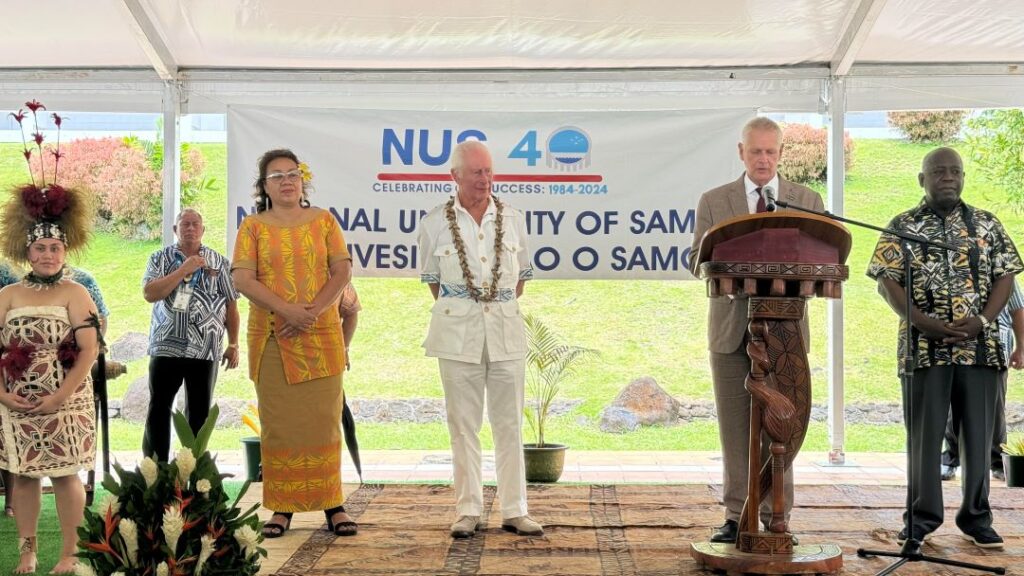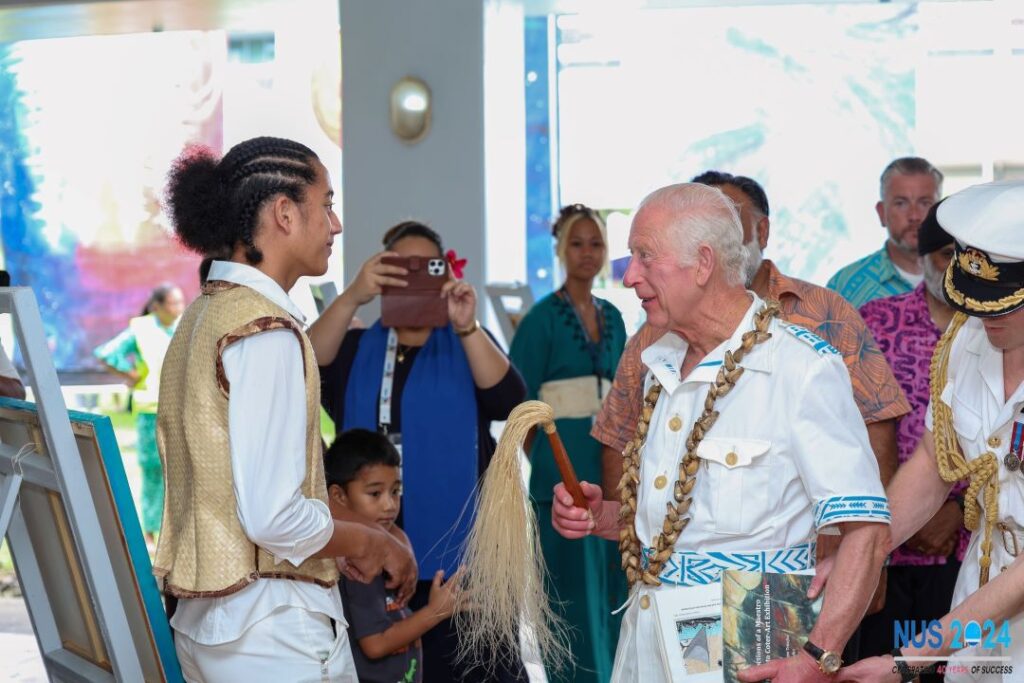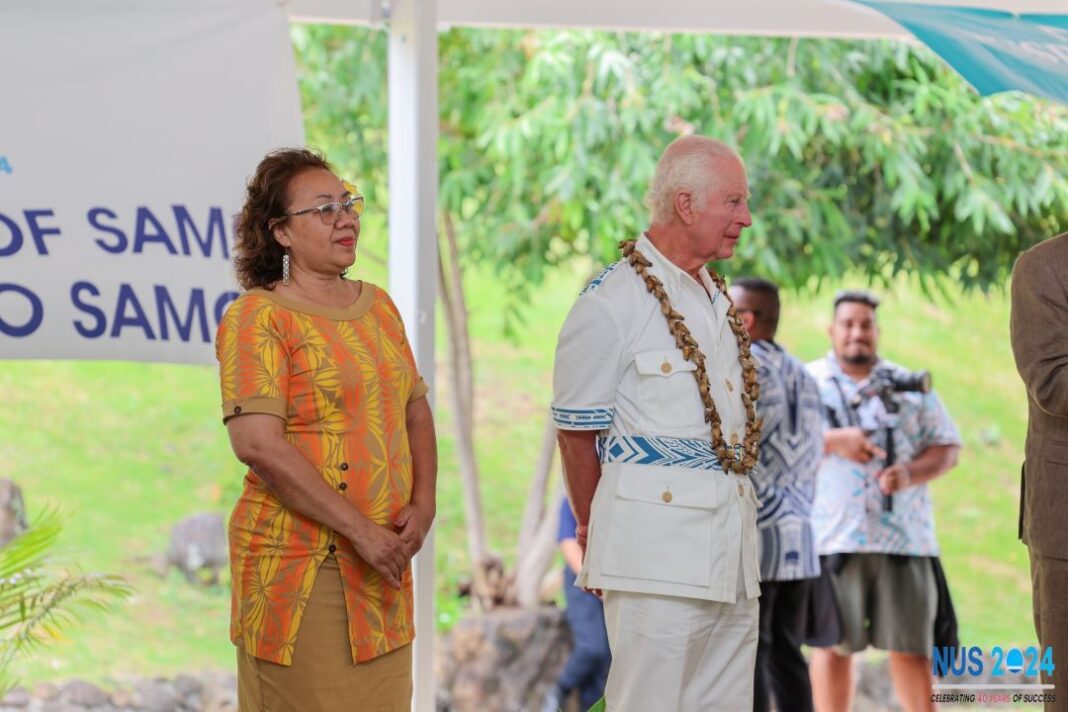Last week, the National University of Samoa (NUS) was honoured to welcome King Charles III and Queen Camilla to campus. Their visit celebrated the launch of the King’s Commonwealth Fellowship Programme (KCFP), a new initiative inspired by King Charles’ dedication to education and development in Small Island Developing States (SIDS). The program offers fully funded scholarships and training to students and communities in these regions.
Professor Colin Riordan, Secretary General of the Association of Commonwealth Universities (ACU), spoke on behalf of King Charles, emphasizing education’s vital role in building resilience across Commonwealth nations. He expressed gratitude for the King’s leadership, saying, “This program will fully fund, train, and support undergraduate, postgraduate, and mid-career King’s Fellows, creating a sustainable impact for Commonwealth SIDS.”
The Prime Minister of the Bahamas, Honourable Phillip Davis, also attended, underscoring the Commonwealth’s shared commitment to education and sustainable development. The KCFP, designed to meet local needs, partners with universities across the Commonwealth to address pressing challenges, particularly those posed by climate change.

The program was partly inspired by the volcanic eruption in St. Vincent and the Grenadines in 2021, which led the UK to offer 40 scholarships for affected students. The KCFP aims to boost climate resilience by addressing critical issues like population health, food, and water security. This support is vital for small island nations confronting environmental and economic challenges.
Professor Riordan reaffirmed ACU’s dedication to Commonwealth SIDS, stating, “For over a century, we’ve delivered transformative educational opportunities through our network of 400 members in over 40 countries. We are proud to support this legacy program in His Majesty’s name.”
NUS Vice-Chancellor and President, Professor Tuifuisa’a Patila Amosa, described the KCFP as a “lifeline” for students, saying, “This initiative reflects His Majesty’s vision for a brighter future for all Commonwealth nations.” As the program unfolds, students will gain essential skills that enhance their careers and contribute to the sustainability and resilience of their communities.






